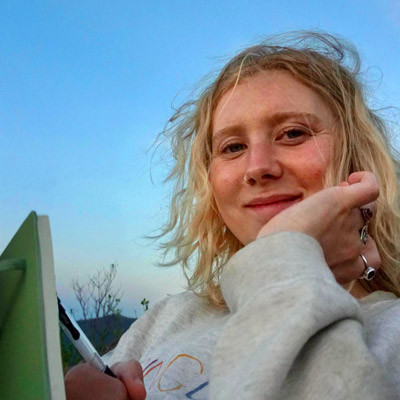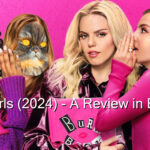It’s been a year since I first ventured into the world of online dating, a journey marked by endless scrolling, hopeful swiping, and the delicate dance of digital courtship. Seasons have changed, and with them, my perspective on seeking connection in the digital age. While this experience has yielded some meaningful connections and even surprising real-life encounters, I’ve reached a point where it’s time to pause and reconsider my approach to digital romance, especially concerning my mental well-being.
The constant pursuit of external validation, the inherent lack of face-to-face interaction, and the ever-present specter of rejection have taken a toll on my mental and emotional reserves. The ease with which I could extend myself to potential partners, only a swipe away, led me down paths of imaginative possibilities, often at the expense of my own needs and self-care. It’s become clear that while online dating offers a vast pool of potential partners, it also presents unique challenges to our mental health.
I’m not suggesting that online dating platforms, or the occasional disappointing match, are solely responsible for feelings of depression, anxiety, or loneliness. These are complex emotions with multifaceted roots. Nor am I abandoning online dating altogether. Instead, I believe that engaging in online dating, or any relationship for that matter, requires a conscious commitment to self-awareness. We must be deeply connected to our values, expectations, desires, and intentions, and remain firmly grounded in them throughout the process.
My journey through online dating has been significantly enriched by working with a therapist. This support has been invaluable in helping me define and prioritize those fundamental aspects of myself, ensuring my online dating experiences are aligned with my personal growth and mental wellness.
Here are the key lessons I’ve learned from a year in the online dating landscape, and how I’m choosing to navigate it with greater intention and self-compassion, focusing on the crucial intersection of Online Dating And mental health.
The Curated Self in Online Dating
Online dating platforms inherently encourage a degree of self-curation. I became acutely aware of the pressure to present an idealized version of myself. More than ever before, I meticulously considered how I was presenting myself. Despite crafting witty profiles and engaging prompts, the initial judgment invariably boils down to a handful of carefully selected images.
While I haven’t lacked matches or compliments, this experience has highlighted the somewhat superficial nature of initial online interactions. It prompted me to question my own motives: Am I selecting photos that genuinely represent who I am and what I value, or am I strategically choosing images solely to maximize attractiveness and match potential? This constant self-assessment can be mentally taxing.
There’s a significant pressure that comes with knowing your worth is initially judged on these curated digital representations. It can feel like a performance, a constant need to live up to the flawless image projected online. What happens when the inevitable changes of life occur – body transformations, evolving styles, or simply the passage of time? The comparison game is amplified in the online dating world, where you’re constantly juxtaposed with countless other profiles, and even against your own meticulously crafted online persona.
Reclaiming Self-Validation Beyond Online Dating
It’s easy to get caught in the loop of seeking validation from online interactions. The notifications of new matches and flattering messages can provide a temporary boost to self-esteem. However, I’ve come to realize that relying on this external validation is unsustainable and ultimately unfulfilling. True self-worth must be rooted internally, independent of online approval.
I’m actively refocusing on activities and aspects of my life that genuinely bolster my self-confidence and sense of security. This means prioritizing my hobbies, nurturing friendships, excelling in my work, spending time in nature, and engaging with the world offline. These are the pillars of my self-validation, providing a stable foundation that online dating cannot and should not replace. This shift is crucial in maintaining a healthy perspective when navigating online dating and mental health.
Navigating Rejection in the Age of Dating Apps
Dating apps have streamlined the process of both giving and receiving rejection to an unprecedented degree. A simple swipe can dismiss someone, and you, in turn, can be dismissed just as easily. You might establish what seems like a promising connection, exchange engaging messages, only to have the potential match vanish when the conversation turns to meeting in person.
Even more disheartening is the prevalence of ghosting in online dating – the abrupt and unexplained end to communication, even after establishing a seemingly consistent connection. While technology isn’t the root cause of such behavior, it undoubtedly facilitates avoidance and makes it easier to bypass honest communication and closure.
I must confess, I haven’t been immune to ghosting others in the past. However, I’m committed to using these past experiences as opportunities for self-growth. I’m reflecting on how personal growth and healthy relationships are hindered when avoidance becomes the default response to challenges or endings. Learning to handle rejection constructively, both as the giver and receiver, is vital for emotional resilience in online dating and beyond.
Self-Reflection and Intentional Dating Strategies
To mitigate the sting of rejection and maintain a healthy perspective, I’m consciously shifting my focus inward. My goal is to become the version of myself that I am most genuinely proud of, irrespective of dating outcomes. To achieve this, I need to periodically step back from the online dating game and actively engage with my life in a full and authentic way. I’ve discovered that when I’m living a life aligned with my values and personal aspirations, rather than seeking external approval, the fear of rejection diminishes significantly.
Furthermore, I’m reflecting deeply on the foundational elements of secure and lasting relationships. These foundations—trust, honest and open communication, care, commitment, attention, and genuine attraction—are rarely, if ever, built solely online. Dating apps can be effective tools for initial introductions, but the true groundwork for meaningful relationships is laid in person, through shared experiences and authentic interactions. As I consider the possibility of a serious relationship, I’m prioritizing clarity about my own wants and needs before becoming immersed in the often-superficial world of online dating. This intentional approach is key to healthy online dating and mental health.
Combating Dating Isolation in a Hyper-Connected World
During my peak involvement with online dating, I noticed an unhealthy pattern emerging. Swiping, matching, checking for updates, and messaging became near-constant activities, infiltrating moments throughout my day: before sleep, upon waking, during commutes, while waiting in lines, even during conversations with friends.
I was, in essence, swiping past the present moment, overlooking the potential for genuine connections and meaningful conversations in my immediate surroundings. I was swiping past opportunities to engage with the world around me and, ultimately, swiping past valuable time that could have been invested in enriching my offline life. This hyper-focus on the digital dating world was inadvertently fostering a sense of isolation, despite the illusion of connection.
Integrating Self-Care and Offline Engagement
To safeguard my mental health while continuing to navigate online dating, I’m implementing crucial boundaries. This includes scheduling regular breaks from dating apps and prioritizing self-care practices and social activities that actively disconnect me from “swipe culture.” These offline engagements are not merely distractions; they are fundamental for personal and social development, laying the groundwork for healthier relationships, both online and offline.
I’m actively exploring alternative avenues for meeting people in person, reigniting my involvement in hobby groups, dedicating quality time to existing friendships, and attending social events in my community. These real-world interactions offer a refreshing contrast to the often-impersonal nature of online dating and contribute significantly to my overall well-being and mental health.
Seeking Support to Reconnect with Myself
Navigating relationships, whether they originate online or in person, is rarely a solitary endeavor. It’s not always easy to navigate these complexities alone or even solely with a partner.
I’ve found it indispensable to collaborate with a therapist to cultivate a deeper understanding and stronger relationship with myself. This process is beneficial before, during, and after pursuing romantic relationships, regardless of whether they begin online or offline.
At HBH Therapy, our dedicated therapists, counselors, and psychiatrists are committed to helping individuals cultivate a self-compassionate and self-actualized relationship with themselves. We offer accessible counseling services online throughout Massachusetts, as well as in-person sessions at our Amherst, Franklin, West Springfield, and Wilbraham offices.
If you’re seeking support to enhance your relationship with yourself and navigate the complexities of modern dating, contact us today at (413) 343-4357 to schedule an appointment and embark on your journey toward self-acceptance and healthier connections.
 Nettie Hoagland Headshot
Nettie Hoagland Headshot
Nettie Hoagland
Nettie Hoagland is a writer with a background in local news reporting, nonprofit communications, and community development. She holds a bachelor’s degree in Media Studies, Journalism, and Digital Arts from Saint Michael’s College in Vermont. Nettie is a strong advocate for the arts as a tool for healing and community building. She is passionate about leveraging writing to promote personal and social growth within the mental health field. Currently based in Brooklyn, NY, she continues to explore these intersections in her work.

